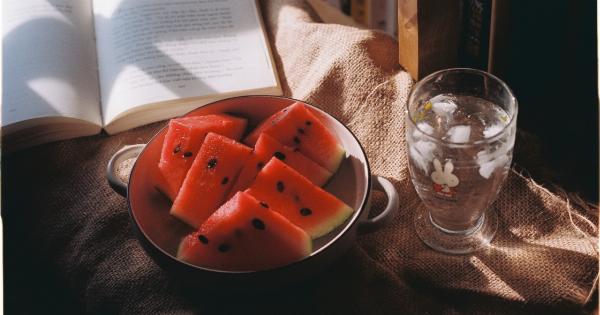Summer is the perfect time to enjoy the great outdoors and have some fun in the sun. But while you’re enjoying all of the summer activities, it’s important to remember to take care of yourself, too – and that includes eating healthy!.
1. Stay Hydrated
Drinking plenty of water is essential in the summer heat. It helps regulate your body temperature, keeps your skin hydrated, and aids in digestion.
Aim to drink at least eight glasses of water per day, and more if you’re spending a lot of time outdoors or if you’re doing any strenuous physical activity. It’s also a good idea to avoid sugary drinks like soda and energy drinks, which can dehydrate you even further.
2. Eat Plenty of Fruits and Vegetables
In the summer, there’s an abundance of fresh fruits and vegetables available. Take advantage of this by filling your plate with as many colorful fruits and vegetables as possible.
Not only are they low in calories and high in nutrients, but they also contain water, which can help keep you hydrated. Try to aim for at least five servings of fruits and vegetables per day.
3. Choose Lean Proteins
Protein is important for building and repairing muscles, and it’s also essential for maintaining healthy hair, skin, and nails. But not all protein is created equal. In the summer, opt for lean protein sources like grilled chicken, fish, or tofu.
Avoid fatty meats like beef or pork, which can be heavy and difficult to digest in the heat.
4. Limit Your Alcohol Intake
Drinking alcohol in the summer can be fun, but it’s important to remember that too much alcohol can be harmful to your health. It can dehydrate you, increase your risk of skin cancer, and lead to weight gain.
Limit your alcohol intake to one or two drinks per day, and make sure to drink plenty of water in between.
5. Choose Healthy Fats
Fats are an important part of a healthy diet, but not all fats are created equal. In the summer, choose healthy fats like avocados, nuts, and olive oil, which can help keep your skin healthy and hydrated.
Avoid saturated fats like those found in fried foods or fatty meats, which can increase your risk of heart disease.
6. Avoid Processed Foods
Processed foods are often high in sugar, salt, and unhealthy fats. They also tend to be low in nutrients, which can leave you feeling hungry and unsatisfied.
Instead of reaching for processed snacks, try to stick to whole foods like fruits, vegetables, and nuts. These foods will give you more sustained energy and help keep you feeling full.
7. Don’t Skip Meals
Skipping meals is a common mistake people make in the summer. They get busy with activities and forget to eat, or they try to cut calories in an effort to lose weight. But skipping meals can actually do more harm than good.
It can slow down your metabolism, lead to overeating later on, and leave you feeling tired and irritable. Instead of skipping meals, try to eat small, frequent meals throughout the day to keep your energy levels up.
8. Watch Your Portion Sizes
It’s easy to overeat in the summer, especially when there are so many delicious foods available. But overeating can lead to weight gain and make you feel sluggish. To avoid overeating, pay attention to your portion sizes.
Use smaller plates and bowls, and take your time while you eat so that you can savor each bite.
9. Plan Ahead
Planning ahead can help you make healthier choices in the summer. Before you go to a party or a cookout, for example, take a look at the menu and decide what you’re going to eat.
If you’re going on a road trip, pack healthy snacks like fruit and nuts so that you don’t have to rely on fast food.
10. Practice Mindful Eating
Mindful eating is the practice of being present while you eat, and paying attention to your body’s hunger and fullness cues. It can help you make healthier choices, avoid overeating, and enjoy your food more.
To practice mindful eating, try to avoid distractions like your phone or the TV while you eat, and take your time to savor each bite.






























